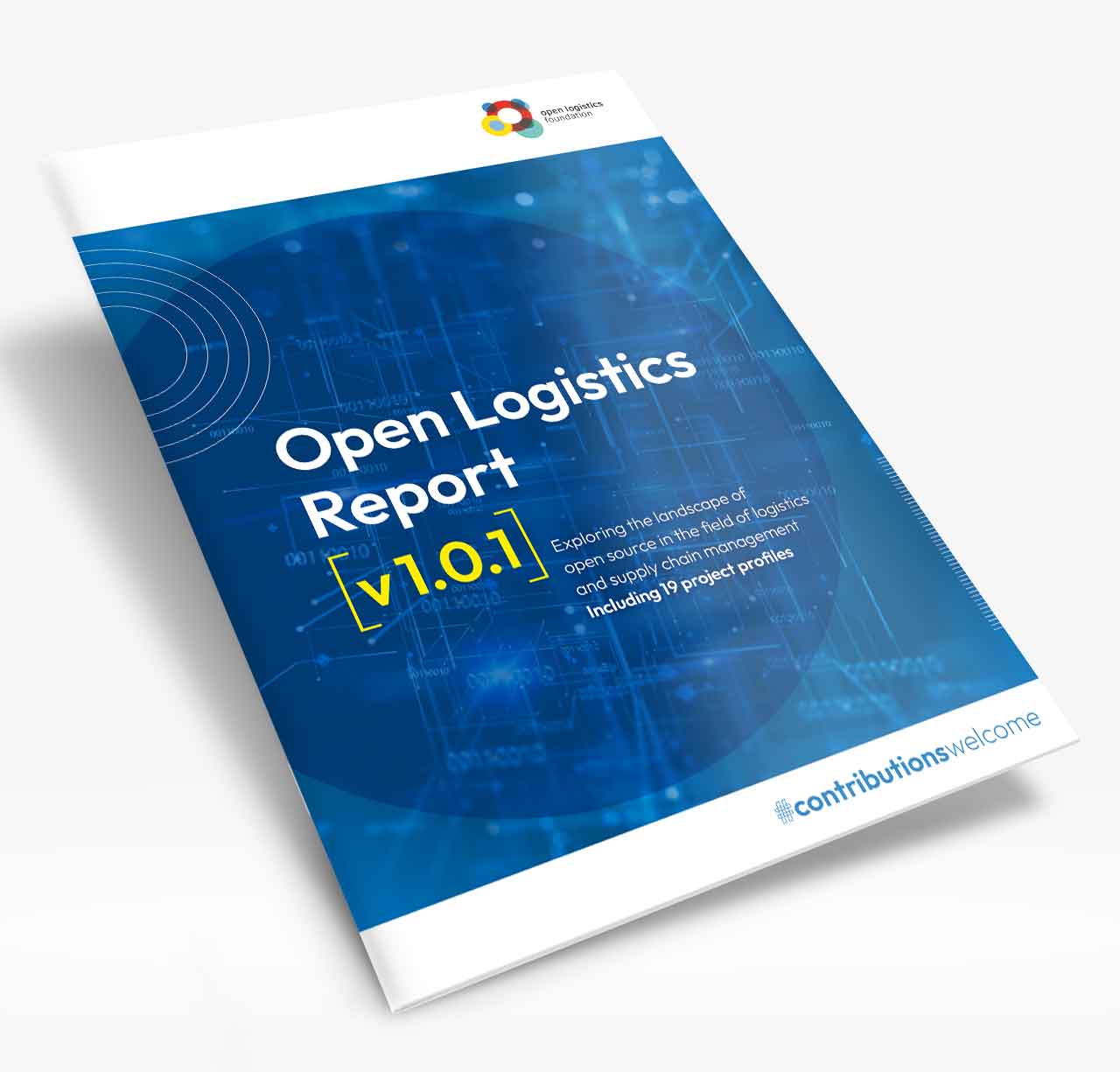Facts. Projects. Profiles.
Open Logistics Report

About the report
The logistics industry faces significant challenges, including system incompatibility, technological disruptions, and resource constraints. Open source solutions have the potential to address these problems by providing compatibility, flexibility, cost savings, and integrative capabilities. This is why the Open Logistics Foundation wants to draw the attention of companies, organisations, and developers to existing open source projects through the Open Logistics Report.
The project profiles consist of a brief description, information on the application and the target group, and information on how to find the project and the licence. The edition 1.0.1 lists 19 projects, including four from the Open Logistics Foundation.
Contributions to the efficiency and sustainability of global supply chains through open source and open standards, as well as information on software, licences, and standards from the framework for the project profiles. They serve to deepen the understanding of open source in logistics and offer valuable tips on using open source solutions.
Contributions Welcome
The importance of open source in logistics and supply chain management continues to grow, and more companies worldwide are launching open source projects. The Open Logistics Foundation would be delighted if you would let us know about your project and include a profile in the next Open Logistics Report.
If your project is missing from the current report or if you have initiated a new project, send us an email to report@openlogisticsfoundation.org.
Get in touch.

Jens Leveling
Technology Advisor
+49 (0) 231 70096 503
Subscribe to the Open Logistics Report
We will happily provide you with future updates on the Open Logistics Report. Send us an e-mail, and we will add you to our mailing list.
FAQs
Important to know
FAQs about the Open Logistics Report.
How does my project get into the report?
Send us an e-mail with the most important information to report@openlogisticsfoundation.org at any time. We will get back to you, create the profile with you, and include your project in the next update of the Open Logistics Report.
Which projects are included in the report?
The Open Logistics Report gives interested companies an initial insight into publicly documented open source projects in logistics and supply chain management. The focus is on open source projects and initiatives in the business sector. The operator background (central actor/ consortium/ network or industry/ research/ individual) and financial orientation or revenue strategy (profit-oriented/ non-profit) are irrelevant in this context. The list of project profiles is not claimed to be exhaustive. It is based on network and internet research. All project profiles are based on the respective projects’ own presentation.
Why are not all projects from the Open Logistics Repository included in the report?
The Open Logistics Report contains all Open Logistics Foundation projects launched or being driven forward by innovation community members as part of Working Groups. Projects included in the Open Logistics Repository as code donations from the “Silicon Economy” research project of the Fraunhofer Institute for Material Flow and Logistics IML are not included.
How often is the report published?
The first edition of the Open Logistics Report, version 1.0, was published in May 2024. It is updated when new projects are added or reported.
Why does the Open Logistics Foundation publish the Open Logistics Report?
The Open Logistics Foundation is the first and only international organisation to promote open source software and hardware in logistics and supply chain management. With this in mind, we see ourselves not only as advocates for the projects of our open source community but also as advocates for the entire industry. In the spirit of open source, the report is an offer to open source communities worldwide to share their projects.
